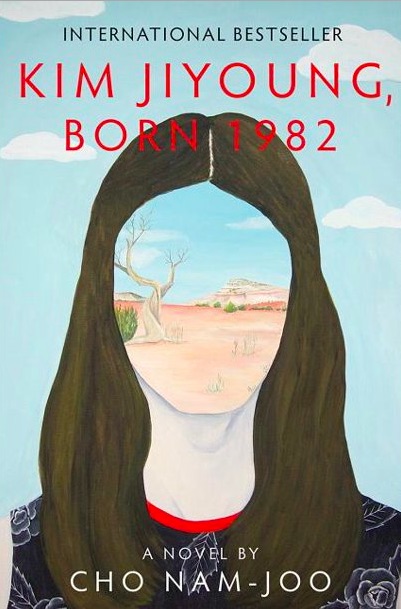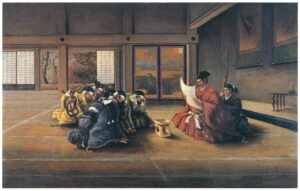A Life with Real Purpose – Tokyo is the Best Place to be Single

Japan is a country that is aging rapidly, and possesses one of the oldest populations. 40% of Japan’s population will be 65 years and older by 2060. The median age in Japan is around 48 years old as of 2020. The population continues to shrink because many people have decided to stay single, birth rates are decreasing, the average marriage age is going up, and the elderly are single again after their partners have passed away.
Japanese people are generally very respectful and polite. They sincerely want to coexist with others, trying to live peacefully and safely with each other. This probably stems from a large population living close together on small islands. Thus, people feel it is necessary to behave in accordance with socially accepted standards and traditions. However it can sometimes cause peer pressure as everyone pushes each other to conform so that everyone lives comfortably in harmony. It is common for Japanese people to keep quiet and choose the same safe things with others in their surroundings to maintain conformity. For example, Japanese people tend to wear similar clothing regardless of their gender and age.
In big cities, such as Tokyo, Osaka, and Kyoto, there is less pressure to conform as the people are constantly working and are busy. In addition, individual philosophies in the big cities are much more diverse and tend to care less about conforming with others in their surroundings. However, in remote rural areas, the traditions to conform to the surrounding community are much stronger. There are constant pressures to not be different and the philosophy of not to go outside of “normal” behaviors. Regardless of the natural push for conformity in Japanese society, many of the younger generations of Japanese people have decided to go against the grain and stay single. Here are some reasons why Japanese people are staying to live a single life.

- Diverse & Open-Minded
Social pressures on traditional thinking are decreasing, such as getting married and having children for both genders. Over a decade ago, getting a divorce was not a popular choice. Many people stay married even when the couples actually hate each other. Today, because many Japanese people study abroad, work & live in foreign countries, have a bi-cultural marriages, with a growing number of foreign people living and working in Japan, the Japanese thoughts tend to be more diverse and more open-minded.
The decrease in the need for marriage is largely due to the shift of the family form, from “house” to “individual”. In a traditional family, Japanese parents assumes their first child, or most of the time their son, will support and expect to live with them when they can no longer care for themselves. In the distant past, Japanese run family-owned businesses such as farming, fishing, kimono manufacturing, tea and sake (Japanese alcoholic drink) producers fully expect their first son take over the business/house after the parents step down from the company. If the family doesn’t have a son, the first daughter’s husband changes his last name for his wife’s, and the son-in-law then becomes the household head. There is a law requiring a married couple to use the same surname, but for many years, a large number of Japanese are calling for amendments to this law.
These long-standing traditions have become less important. Many in the modern Japanese workplace now transition family-owned business to corporations. Japanese parents have increasingly become more westernized as they decide to stay in a nursing home when they can no longer care for themselves. Thus, in many cases, marriage has come to be understood more as a matter of personal choice rather than a matter of home obligation.
- Women’s Roles Changed
In 1986, the legalization of the Equal Employment Opportunity Act has expanded female labor participation. Many women increasingly choose to live alone and seek independence. Before this law was established, women had only the choice of becoming wives and mothers of their children.
- Changed In Social Credibility
In the ’90s, married men could get a better position than non-married men at their office because their wives were a symbol of proof of social credibility. With the recent changes in human rights awareness that equalize individuals, many corporations treat single and married employees more equitably.

- Rising Childcare Costs
In Japan, marriage is often thought of as a path to having children. However, these thoughts are changing with sluggish worker income, education costs continuing to rise, and the burden of childcare costs per child becoming heavier for households. There are quite a few people who still want to be married and have children, but many Japanese are now reconsidering. They say, “I don’t think it’s good to have children now, because having children is costly. And if you don’t have children, you don’t have to get married.” In addition, single parents or having children without getting married is not an easy choice under the current structure of Japanese society and law.
- Lower Sexual Desire
One of the reasons for marriages is that people can have a stable sex partner, especially men with a high libido. For men, securing a sex partner was a fairly pressing issue, and was one of the important incentives to make a marriage decision. But today, Japan’s sex industry has developed into several varied businesses, offering different services, and thus, the libido in Japanese men is being satisfied elsewhere. For that reason, it seems that the benefits of having a stable sex partner due to marriage are diminishing. Physical sex with a partner was one of the important pleasures in the old-world. However with modern technology, many types of new entertainment have been created which makes desire for traditional romance & sex with a real person less interesting.
- High Convenience Services
Japan’s convenience stores are open 24 hours and 7 days a week The number of store locations continue to grow, even in the suburbs. They offer high convenience for those who prefer a single lifestyle. In the past generations, one of the reasons men wanted to be marred is the need for someone to take care of them, their personal necessities, and the house. It can be shameful to think that when women get married, they are thought to become the housekeeper or maid. However, it can be easily thought of as one of the benefits of marriage, especially from the perspective of men. This has diminished as it has become much easier to live alone. The single women perspective compared with their freedom single life, they prefer not to be that housekeeper for men.
There are other varying reasons why people stay single in Japan. But we would like to share some of the above compelling reasons of why Japanese seem to prefer stay single today.
More tips…..
Korea has some similar aspects of “people stay single” culture with Japan. One example is seen in the Korean novel, Kim Ji-young: Born 1982 in 2016. The novel was a big hit in Korea, and afterwards, a Korean-Japanese translation of the book was published. It eventually became a best seller in Japan as many Japanese women sympathized with the main character’s life story. This novel also became a popular movie in 2019.

The novel provides a good understanding of traditional asian married culture, especially how newlywed women are pressured to be the very best wives for their husbands by demanding in-laws. This eventually forces women to abandon their jobs and careers, especially after having their first child. In today’s society, asian women continue to struggle with balancing home and work. The novel and movie both declare that each life is valuable, and we should not judge a person’s quality of life simply by being single or married.
Not only in Japan, but in other countries around the world, people choose to stay single. We should respect the choices and perspectives from all different cultures around the world. What does your respective country or culture think about people staying single?







 Instagram
Instagram